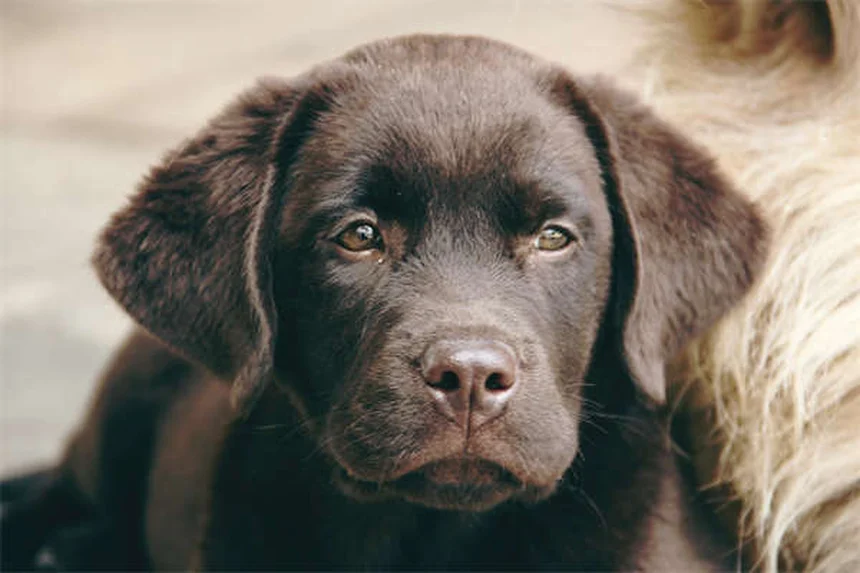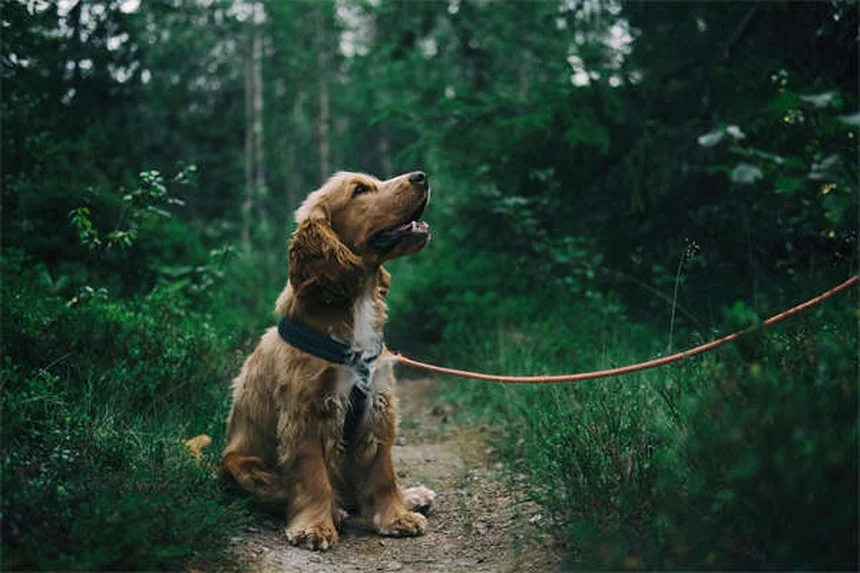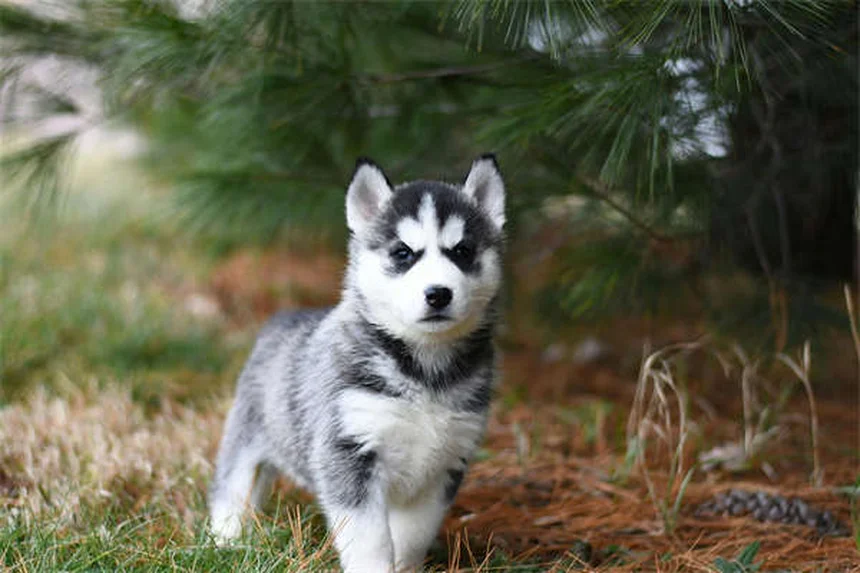Is your new puppy showing signs of anxiety? The answer is yes - it's completely normal for puppies to feel stressed when adjusting to their new home. Think about it: one day they're snuggled with mom and siblings, the next they're in this strange place with giant humans making weird noises. But here's the good news - with the right approach, you can help your anxious puppy feel safe and secure in no time.As someone who's helped hundreds of new puppy parents, I can tell you that the first few weeks are crucial for preventing long-term anxiety issues. In this guide, we'll walk through exactly what causes puppy anxiety, how to spot the signs, and most importantly - practical solutions you can start using today to help your furry friend feel at home.
E.g. :Adopting a Heartworm-Positive Dog: What You Need to Know
- 1、Understanding Puppy Anxiety: Why Your New Best Friend Feels Stressed
- 2、Reading Your Puppy's Body Language Like a Pro
- 3、Creating a Puppy Paradise: Your Step-by-Step Guide
- 4、Advanced Anxiety-Busting Techniques
- 5、When to Call in the Professionals
- 6、Celebrating Small Victories
- 7、The Hidden World of Puppy Senses
- 8、The Social Life of Puppies
- 9、Puppy Brain Development: What's Happening Up There?
- 10、The Emotional Life of Puppies
- 11、FAQs
Understanding Puppy Anxiety: Why Your New Best Friend Feels Stressed
The Science Behind Those Puppy-Dog Eyes
Let's be honest - we've all seen that look. You know the one. Big watery eyes, trembling paws, maybe even a little whimper. Your puppy isn't being dramatic - they're genuinely stressed about their new environment. Think about it: one day they're snuggled with mom and siblings, the next they're in this strange place with giant humans making weird noises.
Did you know puppies can hear frequencies four times higher than humans? That ceiling fan you don't even notice? To them it sounds like a helicopter landing in your living room. Their world is literally louder and scarier than ours, which explains why they might jump at everyday sounds we consider normal.
Nature vs. Nurture in Puppy Personalities
Here's something fascinating - anxiety isn't just about environment. Some breeds are genetically predisposed to be more nervous. Check out this comparison:
| Breed | Anxiety Level | Common Triggers |
|---|---|---|
| Labrador Retriever | Low | Loud noises, separation |
| German Shepherd | Medium-High | New people, strange sounds |
| Chihuahua | High | Everything (they're tiny!) |
But here's the good news - genetics isn't destiny. Even the most anxious puppy can become a confident dog with the right approach. I've seen terrified shelter pups transform into happy, well-adjusted pets with patience and proper training.
Reading Your Puppy's Body Language Like a Pro
 Photos provided by pixabay
Photos provided by pixabay
The Obvious Signs You Can't Miss
Some anxiety signals are unmistakable. If your puppy is:
- Shaking like they're in a snowstorm (when it's 75° outside)
- Barking at their own shadow
- Having more accidents than a toddler potty training
...chances are they're stressed. But here's a question: Did you know excessive yawning can be a sign of anxiety too? Most people think it just means they're tired, but in dog language, it's often a "please don't hurt me" signal.
The Subtle Signs Most Owners Overlook
Some anxious behaviors are easy to miss. Your puppy might:
- Lick their lips constantly (not just when food's around)
- Turn their head away when you approach
- Suddenly become very interested in sniffing the ground
These are all canine ways of saying "I'm uncomfortable." The key is observing patterns - one lip lick might mean nothing, but if it's happening constantly in certain situations, your pup is trying to tell you something.
Creating a Puppy Paradise: Your Step-by-Step Guide
Setting Up the Perfect Safe Space
Imagine being dropped into a foreign country where you don't speak the language. That's basically what your puppy is experiencing. Here's how to create a comfort zone:
- Choose a quiet corner (not a high-traffic area)
- Add a crate with cozy blankets that smell like their littermates
- Include a chew toy and maybe a ticking clock (simulates mom's heartbeat)
Pro tip: Rotate toys weekly to keep things interesting without overwhelming them. Too many new things at once can backfire.
 Photos provided by pixabay
Photos provided by pixabay
The Obvious Signs You Can't Miss
Puppies thrive on predictability. Here's a sample schedule that works wonders:
- 7 AM: Potty break followed by breakfast
- 7:30 AM: Short training session (5-10 minutes)
- 8 AM: Nap time in crate
- 10 AM: Potty break and short play session
Consistency is key. Your puppy will start anticipating what comes next, which reduces uncertainty (a major anxiety trigger).
Advanced Anxiety-Busting Techniques
Desensitization: The Art of Gradual Exposure
Here's a powerful question: How do you help a puppy scared of vacuum cleaners? You don't just shove their face near a running vacuum - that's puppy trauma waiting to happen.
Instead, try this gradual approach:
- Day 1: Leave the vacuum in the room (turned off)
- Day 3: Move it slightly while off
- Day 5: Turn it on briefly in another room
- Day 7: Have it running while giving your pup treats
This process might take weeks, but it teaches your puppy that scary objects aren't actually threats.
The Power of Positive Association
Every scary experience can become an opportunity for treats. Thunderstorm? Break out the chicken pieces. Doorbell rings? Cheese time. You're essentially reprogramming their brain to think "Oh goodie, something scary means snacks!"
Just be careful with timing - the treat needs to come during the scary event, not after. Otherwise you're rewarding fearful behavior rather than creating positive associations.
When to Call in the Professionals
 Photos provided by pixabay
Photos provided by pixabay
The Obvious Signs You Can't Miss
Most puppy anxiety improves with time and training, but seek professional help if you notice:
- Self-harm (excessive licking/chewing paws)
- Complete refusal to eat for more than 24 hours
- Aggression when frightened (growling, snapping)
A good trainer or veterinary behaviorist can work wonders. Sometimes medication is appropriate for severe cases - there's no shame in getting chemical help for your pup any more than there is for humans with anxiety.
Finding the Right Help
Not all dog trainers are created equal. Look for:
- Certification from reputable organizations
- Positive reinforcement methods (no shock collars!)
- Experience with anxiety cases specifically
Ask for references and watch a training session before committing. Your puppy's mental health is worth the extra effort.
Celebrating Small Victories
Tracking Progress Like a Scientist
Keep a simple journal noting:
- Anxiety triggers
- Your interventions
- Your puppy's responses
Over weeks, you'll see patterns emerge. Maybe thunderstorms still freak them out, but the vacuum cleaner is now just background noise. These small wins add up to big confidence gains.
The Joy of a Confident Dog
There's nothing quite like watching your formerly anxious puppy:
- Greet strangers with wagging tail instead of cowering
- Play freely at the dog park
- Sleep soundly through a thunderstorm
That transformation makes all the effort worthwhile. Remember - you're not just training a dog, you're helping shape a personality that will bring you joy for years to come.
The Hidden World of Puppy Senses
Why Your Puppy Experiences the World Differently
You ever wonder why your puppy goes nuts when you open a cheese wrapper from three rooms away? Their nose contains up to 300 million olfactory receptors compared to our measly 6 million. That's like comparing a bicycle to a Ferrari!
Let me paint you a picture - when you walk your puppy, they're not just smelling "outside." They're detecting which neighbor's cat passed by 6 hours ago, what the mail carrier ate for breakfast, and whether that fire hydrant was recently visited by a female dog in heat. Their world exists in layers of scent we can't even imagine, which explains why sniffing is such serious business to them.
The Surprising Power of Puppy Whiskers
Those cute little whiskers aren't just for decoration - they're sophisticated sensory tools called vibrissae. Here's how they work:
- Each whisker connects to a super-sensitive nerve ending
- They detect subtle air currents and vibrations
- They help puppies navigate in dim light
Ever notice how your puppy seems to know exactly where their food bowl is even in a dark room? Thank those magical whiskers! This explains why you should never trim them - it's like taking away their night vision goggles.
The Social Life of Puppies
How Puppies Learn Manners (Hint: It's Not From You)
Here's something most new puppy owners don't realize - the critical socialization period ends around 16 weeks. During this time, puppies learn more about being dogs from their littermates than they'll ever learn from humans.
Think about puppy play - when one bites too hard, the other yelps and stops playing. That's how they learn bite inhibition. When they wrestle, they're practicing body language signals. Did you know that puppies raised without siblings often grow up to have social problems? That's why responsible breeders keep litters together for at least 8 weeks - it's Puppy Kindergarten 101.
The Secret Language of Puppy Play
Next time you watch puppies play, look for these subtle communications:
| Behavior | What It Means | Human Equivalent |
|---|---|---|
| Play bow | "Let's have fun!" | High five |
| Sneezing | "Just playing, not serious" | Saying "just kidding" |
| Turning head away | "I need a break" | Looking at your watch |
Understanding these signals helps you recognize when play is getting too intense and when to intervene. A well-socialized puppy grows into a dog that other dogs enjoy being around.
Puppy Brain Development: What's Happening Up There?
The Puppy Equivalent of Teenage Years
Between 6-18 months, your puppy goes through a fear period that's remarkably similar to human adolescence. One day they're brave explorers, the next they're terrified of the trash can that's been in your kitchen for months.
This is completely normal! Their brain is literally rewiring itself. The best approach? Keep exposing them to new experiences but at their pace. If they balk at something, don't force it - just try again later with more treats and praise. Patience during this phase pays off big time in adulthood.
How Puppies Learn (It's Not How You Think)
Contrary to popular belief, puppies don't understand punishment the way humans do. Here's why:
- They live in the moment - yelling after an accident just confuses them
- Their attention span is about 5-10 minutes max
- They respond best to immediate rewards
That's why positive reinforcement works so much better than scolding. When your puppy sits nicely, that's the exact moment to shower them with praise and treats. Wait even 10 seconds, and they've already moved on to thinking about chewing your shoe.
The Emotional Life of Puppies
Can Puppies Really Feel Love?
Science says yes! When you and your puppy gaze into each other's eyes, both your brains release oxytocin - the same "love hormone" that bonds human parents and babies. This biological connection explains why dogs are the only animals that spontaneously seek out eye contact with humans.
Here's a fun experiment: try measuring your puppy's heart rate when you're just hanging out together, then compare it to when you're actively petting and talking to them. You'll see their stress levels literally decrease in real time from your affection.
Do Puppies Get Jealous?
You bet they do! Researchers have proven that dogs show jealous behaviors when their owners pay attention to other dogs or even stuffed animals. Typical signs include:
- Pushing between you and the rival
- Whining or barking for attention
- Showing off with toys or tricks
This isn't just cute - it demonstrates that puppies form deep emotional attachments. They don't just love the food you provide; they love you as an individual. Isn't that the most heartwarming thing you've heard all day?
E.g. :Expert Tips on How to Calm an Anxious Dog, Soothe Dog Anxiety
FAQs
Q: How long does puppy anxiety typically last?
A: Most puppies will show some anxiety for the first 2-4 weeks in their new home. This adjustment period is completely normal as they're learning about their new environment and routines. However, if your puppy's anxiety persists beyond a month or seems to be getting worse, it's time to consult with your veterinarian. We've found that puppies who receive consistent training and a stable routine typically adjust faster. The key is patience - remember they're just babies learning how to navigate a big, scary world!
Q: What are the most common signs of anxiety in puppies?
A: Puppies show anxiety in various ways, and some signs are more obvious than others. The most common symptoms we see include excessive whining or barking, trembling, hiding, and having accidents despite being potty trained. But here's something many owners miss - subtle signs like excessive yawning, lip licking, or avoiding eye contact can also indicate stress. If your puppy suddenly becomes very interested in sniffing the ground when approached, they might be saying "I'm uncomfortable" in dog language. Learning to read these signals is crucial for addressing anxiety early.
Q: Are certain breeds more prone to puppy anxiety?
A: Absolutely! While any puppy can experience anxiety, some breeds are genetically predisposed to nervousness. In our experience, German Shepherds and small breeds like Chihuahuas tend to be more anxious, while Labrador Retrievers are generally more easygoing. But here's the important part - genetics isn't destiny. Even the most anxious puppy can become a confident dog with proper training and socialization. The key is understanding your puppy's individual needs and working with their personality, not against it.
Q: How can I help my puppy feel safe when I'm not home?
A: This is one of the most common concerns we hear from new puppy parents. Start by creating a comfortable "safe space" - usually a crate with cozy blankets and maybe a shirt that smells like you. We recommend leaving some background noise like soft music or a white noise machine to mask scary outside sounds. Gradually getting your puppy used to alone time is crucial - start with just 5-10 minute absences and slowly increase the duration. And don't forget the power of puzzle toys stuffed with treats - they keep puppies occupied and create positive associations with alone time.
Q: When should I seek professional help for my anxious puppy?
A: While most puppy anxiety improves with time and training, there are definite red flags that warrant professional help. If your puppy shows signs of self-harm (like excessive paw licking), refuses to eat for more than 24 hours, or displays aggression when frightened, it's time to consult a vet or certified dog trainer. In our practice, we've found that early intervention for severe anxiety cases leads to much better outcomes. Look for trainers who specialize in positive reinforcement methods and have experience with anxiety cases specifically - they can make all the difference in your puppy's development.
